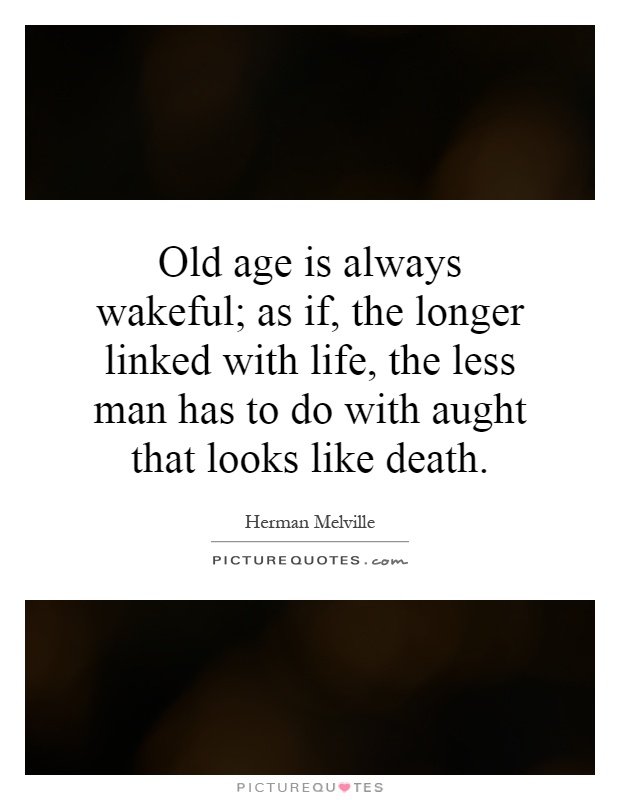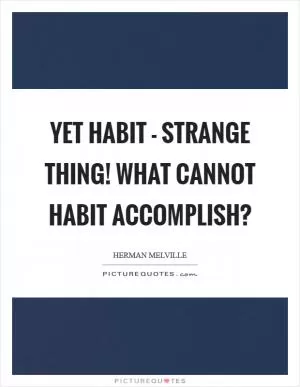Old age is always wakeful; as if, the longer linked with life, the less man has to do with aught that looks like death

Old age is always wakeful; as if, the longer linked with life, the less man has to do with aught that looks like death
Herman Melville, the renowned American author best known for his masterpiece "Moby-Dick," often explored themes of mortality, aging, and the human condition in his works. The quote "Old age is always wakeful; as if, the longer linked with life, the less man has to do with aught that looks like death" is a poignant reflection on the inevitability of aging and the way in which it shapes our perception of life and death.In many of Melville's works, such as "Bartleby, the Scrivener" and "Billy Budd," the characters grapple with the passage of time and the inevitability of death. Melville's writing often delves into the complexities of human existence, exploring the ways in which we confront our mortality and the impact that aging has on our understanding of life.
The idea that old age is always wakeful suggests a heightened awareness of one's mortality as one grows older. As we age, we become more acutely aware of the passage of time and the limited nature of our existence. This heightened awareness can lead to a sense of restlessness or unease, as we grapple with the reality of our own mortality.
The notion that the longer one is linked with life, the less they have to do with death speaks to the paradoxical nature of aging. As we grow older, we become more intimately acquainted with death, yet we also become more removed from it in a sense. Our experiences and memories accumulate over time, creating a distance between ourselves and the inevitability of death.












 Friendship Quotes
Friendship Quotes Love Quotes
Love Quotes Life Quotes
Life Quotes Funny Quotes
Funny Quotes Motivational Quotes
Motivational Quotes Inspirational Quotes
Inspirational Quotes